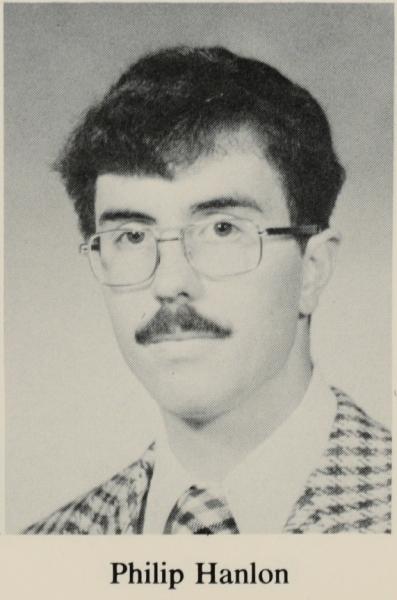I emailed Barbara Will, chair of the Presidential Steering Committee, with some questions. Reluctant to divulge “anything concrete” to the media, she was instead willing to discuss the Committee’s “process”. Throughout our correspondence, Will maintained her characteristic courtesy and professionalism. The Review continues to regard her as one of The College’s best faculty members.
Secrecy, however, seems to be the absolute rule regarding public knowledge of The Committee’s decisions. Though that secrecy — which I find in puzzling contrast to The Committee’s paeans to public engagement — limited the substance of her responses, I’ve pasted contents of our email correspondence in the article below.
Henry Woram: The Presidential Steering Committee webpage lists three critical areas that need attention: sexual assault, high-risk drinking, and exclusivity. Which of these three, if you had to pick one, would be the highest priority and why?
Barbara Will: I don’t think I can prioritize one or the other of the issues we’re looking at. Increasingly I see them as part of a web or matrix–each one feeds into the other; you address one and the others start to look different: clearer, more manageable. The challenge has been that of trying to separate out the three issues as discrete phenomena and then also understanding their interconnections. It has helped to keep in mind a fairly basic goal: we want to make Dartmouth safer and more inclusive for all, and we want to affirm the qualities that make it into one of the best undergraduate institutions in the country. (Barbara Will)
Woram: What have been your best and worst moments working with the Steering Committee?
Will: My best moments in this process have been working with a fantastic committee and connecting with untold numbers of students, alums, parents and other community members, all of whom are passionate about Dartmouth. The degree of commitment to this institution is truly amazing and makes me proud for my affiliation. Worst moments have been the recognition that anything we recommend will disturb a fairly large contingent of people, simply because of the nature of our charge. People feel passionately about the student life experience at Dartmouth, and we are not going to be able to accommodate everyone’s ideas of what student life should look like here.
Woram: I can’t imagine how much of a time commitment this must be. How do you balance your deep involvement with the English Department, your student advisees, your personal life, and now this? Why have you decided to take on this task?
Will: (no answer)
Woram: I want to discuss student involvement with the Steering Committee. While plenty of good work has been done at the administrative level, much of the process has occurred during summer holiday, with only ’16s on campus. Moreover, many students have simply refrained from participation in initiatives like the Improve Dartmouth website and the chalkboard placed outside Collis last spring. How realistic is it to expect the average, contented Dartmouth student to get involved with change and how effective have your efforts been to do so?
Will: As for student involvement, we continue to reach out to as many people as we can. Last week we met with four student groups and this coming week we will have dinners with two more groups. If students have missed the opportunity to give their input, they can always leave comments on our website, which is monitored daily (forward.dartmouth.edu).
Woram: Students frequently cite the recent negative media attention as a catalyst for change. How much of that negative media is a factor in your decision processes? Alternatively, what are the other reasons for change?
Will: (no answer)
Woram: There are a lot of layers here. First, there is “Moving Dartmouth Forward”. Next you have the Steering Committee. You also have Hanlon’s “Senior Leadership” Team. Then you have the board, the alums, and the parents and grandparents. Finally, the students and various advocacy groups for student organizations. At the end of the day, who calls the shots?
Will: As for who calls the shots, we are an advisory committee to President Hanlon. He will make the ultimate decision about the recommendations to go ahead with.
Woram: You said that you can’t give anything concrete to the media at this point. Why keep the media, particularly student media, out? Is it fair that only the administration can control what information it releases regarding the processes?
Will: (no answer)
Woram: The committee, according to the website, consists of three professors, an assistant dean, an associate athletics director, two alums, and four students. Moreover, an even smaller number of those students are affiliated with Greek houses, the members of which encompass around 70 % of the eligible student body. Do you think those numbers are consistent with the message that “Every Member of the Community” must be a part of the process?
Will: We are happy with the makeup of the committee. We have all different viewpoints represented–along with all of our official roles (faculty, staff, etc) we have affiliated alums, non-affiliated students, parents, and every perspective in between. If people could see the intense deliberations we are going through on an almost daily basis, they would recognize how broad our different perspectives are. This makes arriving at consensus about anything really difficult. But the process is better for it.
Woram: Just curious — why no live interviews?
Will: As for no live interviews, this has been my policy since I set foot on the Dartmouth campus 20 years ago. Other professors may feel differently, but I find it easiest to articulate my thoughts in writing.


Be the first to comment on "Interview with the Steering Committee Chair"